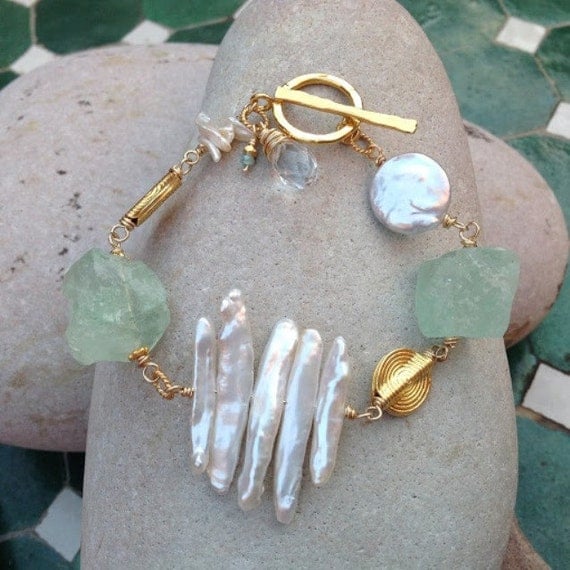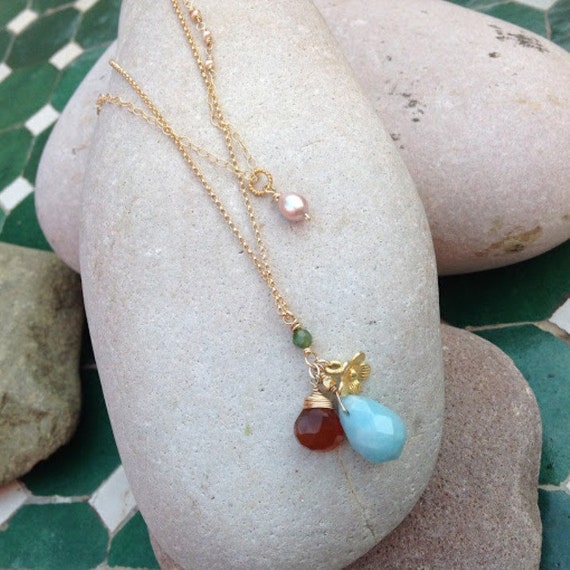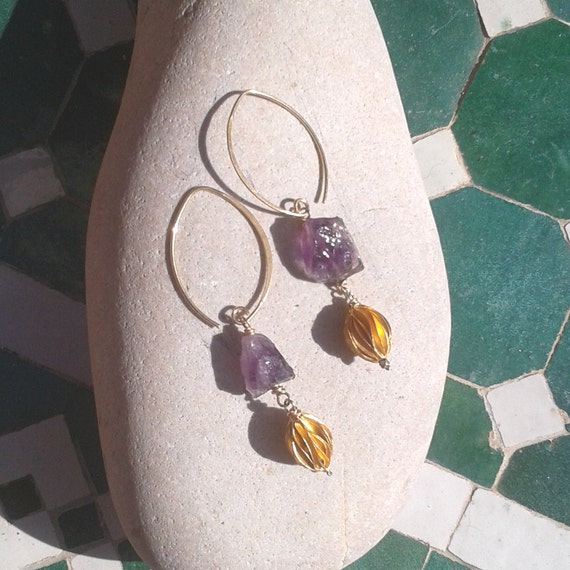 A few months before Ramadan this year, a couple of good friends confided in me that their Ramadans are always horrible. Always. One friend’s husband is a smoker and every Ramadan she has to deal with his nicotine withdrawal, which includes irrational-like grumpiness and downright cruelness with both his words and actions. She’s spends her Ramadans waiting for the moment when he inhales so she can exhale. The other friend spends the entire month attempting to please the high needs and demands of her in-laws and husband. She cooks, cleans and serves at a break-neck constant pace throughout the month, while receiving a constant stream of nit-picking and frequent reminders that her lack of a cheerful demeanor indicates that she is not happily providing servitude to her family for the sake of Allah. Of course friend #2 isn’t able to perform any of the special Ramadan acts of ibadah which most of us look forward to and she is belittled for her failings there as well.
A few months before Ramadan this year, a couple of good friends confided in me that their Ramadans are always horrible. Always. One friend’s husband is a smoker and every Ramadan she has to deal with his nicotine withdrawal, which includes irrational-like grumpiness and downright cruelness with both his words and actions. She’s spends her Ramadans waiting for the moment when he inhales so she can exhale. The other friend spends the entire month attempting to please the high needs and demands of her in-laws and husband. She cooks, cleans and serves at a break-neck constant pace throughout the month, while receiving a constant stream of nit-picking and frequent reminders that her lack of a cheerful demeanor indicates that she is not happily providing servitude to her family for the sake of Allah. Of course friend #2 isn’t able to perform any of the special Ramadan acts of ibadah which most of us look forward to and she is belittled for her failings there as well.
Wow, I was truly shocked as I had never had a bad Ramadan. Sure, sure I get a little pre-Ramadan anxious about the food and not having access to the food at regular intervals, but while I still have those feelings every year, after my first few fasts I knew that the hunger and thirst were truly not that bad. It’s mostly the unusual scheduling that Ramadan brings that I have found most difficult and more difficult each year as I have more children, now in all stages. This past Ramadan I had six kids ranging from a (greedy) breastfeeding baby of 14 months to a 14.5 year old teen who has fasted full Ramadans for a few years. As our family grows and our home environments change, the last few years I have found it helpful to have family meetings about what we all anticipate to happen and want to be doing during Ramadan. In Ramadans past this has helped me to recognize the needs of and prepare for our different styles of Ramadan, such as the years my husband took the boys to community iftars every night (heavenly years where I opted out of the stuffy, windowless sisters’ room and stayed home enjoying the quiet!) and the years we lived with my sister-in-law who has a very rigid Ramadan schedule which she stuck to even with seven people added into her household.
This year I was to be alone with the kids for the first couple of weeks of Ramadan as my husband had planned to be gone, so I sat down with the kids to discuss their expectations. I had hoped to help the three fasting older boys to understand that the iftar spread does not magically appear on the table and to accept that if that’s what they wanted (who doesn’t want a little feast at mahgrib?), then they would have to help to get it together. I had also hoped to illicit some empathy out of them, to get them to understand that in addition to fasting along with them and doing the managerial work of the suhoors and iftars, I also have younger children who would be keeping more regular schedules and would need supervision throughout the days as well as to be fed. Their response: nada. One son offered that he wanted “cake every day” and being the sincere (and previously a retail baker) kind of mom I am, I jumped at that suggestion and did bake cakes very regularly during the month. But when it came to addressing schedules- who would do what and when- forget about. They gave me groans and want-you-dead stares.
Some people might chalk this mis/lack of communication to typical mannish ways, but in hindsight- after an unusually horrid month with them, I think there was something else at play there. I think that they were having their own Ramadan anxieties and rather than work with me, they opted to just opt out. They closed down. I did try a second and third time to get them to “visualize our Ramadan together”, but again I got nothing.
Mistake #1
Ever heard the saying that “Expectations are unrealized resentments”? I expected my sons to empathise with me about the increased workload that Ramadan brings, and I expected them to help. Ha! Now, maybe some of you have perfectly perky children who upon waking every morning, happily refer to their to-do list and then systematically work through it, checking off their tasks as they accomplish them before rewarding themselves with a gold star or a game of Angry Birds. For the rest of us, I’ll randomly estimate, billions of parents the world over and throughout the ages- we suffer what is known as The Chore Wars. Beating, bribing, begging- to each their own how they deal with it, but a week or so into Ramadan I sought support and commiseration from some of my sister-girlfriends and lo and behold our kids were worse during Ramadan! Many people’s otherwise delightful children metamorphosed into bitter, resentful, heel and palm dragging, tantrum throwing beasts. And of course we all noted with horror that if Shaytan is locked up during Ramadan, then our children…
Mistake #2
This Ramadan the typical adolescent cry of “You’re trying to control me!” finally made its way to our home. Well, no duh. But herein I feel that I really failed: we (as in the husband) chose to restrict electronics during Ramadan. This makes perfect sense to a logical adult who understands that they are fasting not only with their stomach, but also with their other senses. Why would you expose yourself to ibadah-time wasting and potentially even haram content-filled entertainment during Ramadan?! We went cold turkey off the electronics while fasting, and now in the well-fed light of day I see that there could have been a better way. A couple of my (very smart) friends actually invested in handheld devices specifically for Ramadan. They chose all the content – new and exciting!- and were able to use the devices to both control (bribing!) and further control (keep ‘em occupied!) the kids without the kids even minding too much. I have already started stockpiling new-to-them “quality entertainment” for next Ramadan. As we get closer to next Ramadan, insha Allah, I will let them pick out some edutainmenty things so as to attempt to reduce the complaints about us, the adults, controlling everything.
More Solutions
As a home-educating mother I have long @@ at mothers who “just do all the chores, because it’s easier.” Maybe in the short term it’s easier than these daily battles I dredge through, but it’s a great disservice to our kids and would likely literally kill me if I tried. Deconstructing the worst (not all, just the worst) scrimmages of our just passed Ramadan, three particulars really stand out for me as needing resolutions for next year: The Dishes, The Milk Run and Iftar Help.
I let most of the chores slide (even for myself) during Ramadan as we all have less energy; less energy to do and less energy to nag, but those three chores had to be done daily and were battles every time. Well actually, the first day of Ramadan one of my sons cooked iftar before I even woke up! He cooked in a filthy kitchen that he was supposed to have cleaned the night before (the cooking was meant as a “surprise”), so when I got mad about the mess he further shut communications down, feeling that his actions weren’t appreciated and the only other few times he cooked during the month were done so after immense nagging on mine and his father’s part.
To me, another full grown adult with a lot to learn, this kitchen work stuffs seems logical; I like to cook in a clean kitchen, cleaning as I go along, serving the meal on plates that are clean and waiting, and then clean it all up again sometime after we eat, and then repeat the whole thing forever. OK, maybe I should omit “like” in there because a lot of times I loathe the entire process. And obviously that is just my preference because The Kid managed to cook a scrumptious meal with only four clean items: cutting board, knife, pot and spoon. Still, he does not see passed that cooking moment (let’s not even get into the mess he creates while cooking) to needing those dishes to serve on, as well the cooking and serving that needs to be done in between suhoor and iftar for the younger kids. Tons of work, right? And while I sympathetically added myself to the dish washing roster just for the blessed month (the three eldest rotate dish duty), I refuse to do all of the washing and cooking. I expected (there’s that word again!) the kids to help with our iftars, especially when I was doing some of their work.
And they did help and even fully prepared a few iftars, but with no rhyme or reason- reluctance being the only constant. Maybe without the burden of cleaning the kitchen (we do nearly all of our cooking from scratch, so there can be a lot of dishes involved) maybe the cooking would be easier to approach for all of us. I know some families turn to paper plates during Ramadan and though I am absolutely loathsome of this option (how we gonna skip a whole meal every day, but waste other resources!?) if we are not able to fulfil our mutually agreed upon dream of getting a dishwasher next year, I might seriously buy a stack or several of disposable plates. At least I won’t be using plastic utensils and Styrofoam cups, right?
The last thing that gave me a lot of problems this past Ramadan was The Milk Run. When we lived in urban Morocco this problem was The Bread Run: sending a child to pick up daily fresh bread for iftar. Here we buy fresh daily milk and the kids use a rotating schedule of whose-turn-is-it? throughout the year just like we do with the dishes. It’s about a ten minute walk to go get the milk- right before breaking the fast at mahgrib- a task that apparently few children cheerfully fulfil day after day. This year my non-fasting (and too young to normally go) daughter truly happily went to get the milk everyday with her friends who went that way to get fresh drinking water, but on the days she didn’t go- uff with the begging and bribing again! I really don’t know how we are going to get over this one next year if we are still in this same location, but it would certainly be nice to relieve this other headache.
Moving forward
With all the moaning and groaning (it was actually much louder than that) that went on around here during Ramadan, you can imagine how our acts of ibadah faired. The Boys finally got into the habit of going to tarawee for the final ten days, but on eid I gave the two worst offenders cards which basically said:
“I’m so sorry that we all had such difficult Ramadans and I hope that we can work out some of our problems before next year. I have put aside some money for you for eid, but since I noticed that you didn’t get to read much Quran this Ramadan I have decided that when you demonstrate that you have revised (insert name of long surah child has mostly memorized) then I ‘ll give it to you. I’ll even spend an equal amount towards an electronic device of your choice! I love you, Mama”
And you know what? They weren’t even mad! They knew they were horrible. And maybe I was too. Insha Allah we can begin now to be sure that this past Ramadan remains our most horriblest Ramadan ever.
~~~
If you have had some horrible Ramadans and have found solutions to make them the blessing-filled month we all aspire for, please leave me a comment here to contact you for an interview and I promise not to publish your comment.
*My family home-educates and although I look one, I am not a fulltime housewife.



















